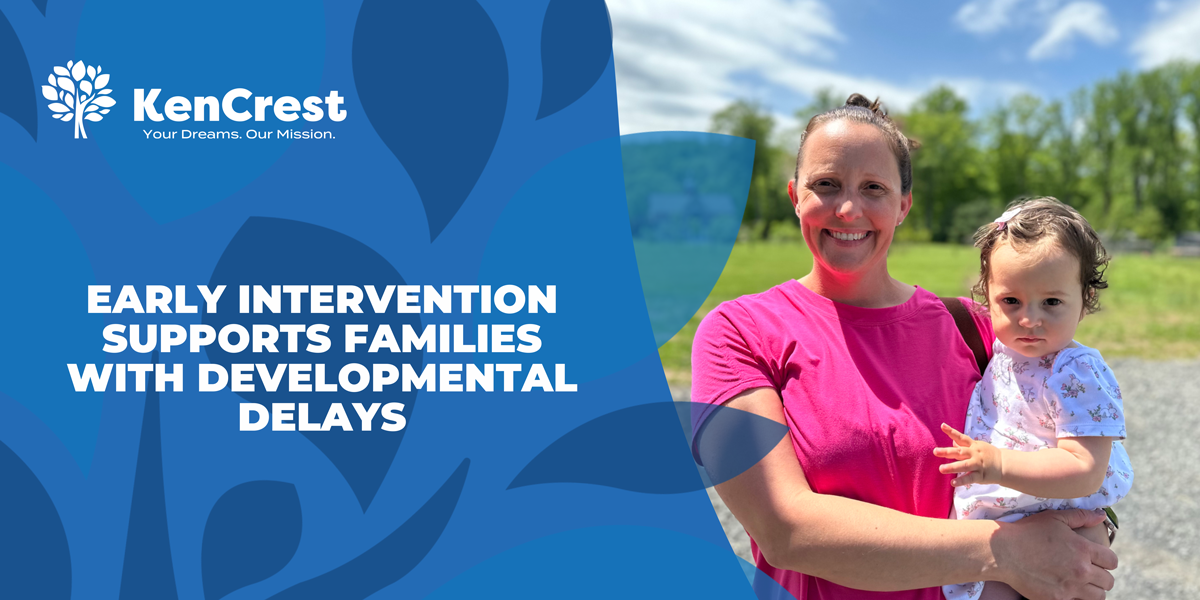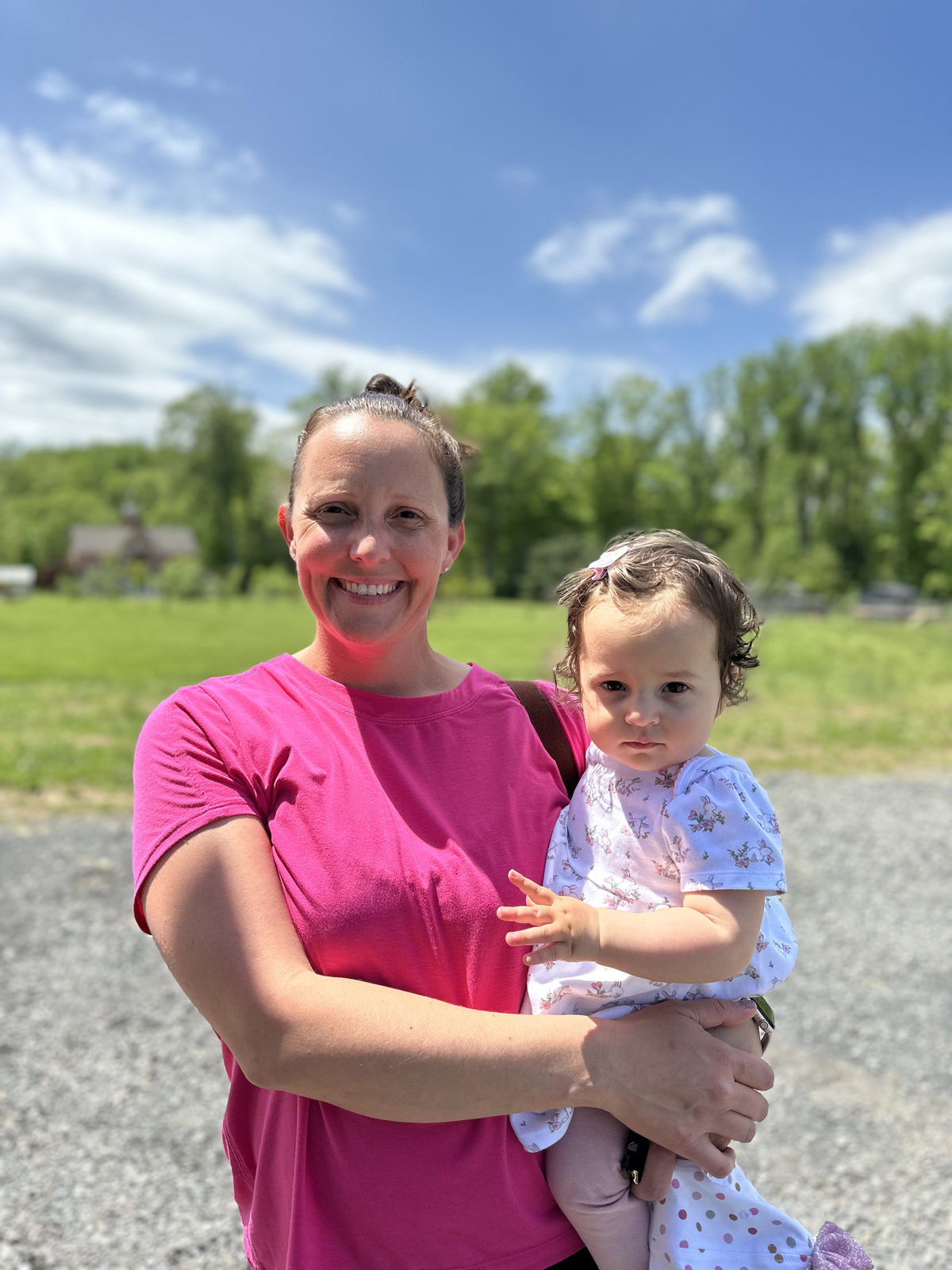
KenCrest’s Early Intervention services are not only for children with developmental delays but also for their parents and caregivers.
By Sydney Kerelo
At 20 weeks pregnant with their third child, Angela Cherill and her husband were excited to welcome a new baby into their family. But what they didn’t expect was to learn that their daughter had a severe ventriculomegaly, a condition where the brain ventricles are enlarged due to the build-up of cerebrospinal fluid. Despite this unexpected news, the Cherill family remained resilient and hopeful for their daughter's future.
Knowing that Emma would require neurosurgery immediately after birth, the Cherills were prepared for the challenges ahead. At just two days old, Emma had a VP shunt put in, a procedure to manage the excess fluid in her brain. Despite the high risk of developmental delays, the Cherills were determined to provide the best care for Emma, leading them to seek Early Intervention support in Pennsylvania.
After only six days in the hospital, Emma came home with her parents and her 10-year-old twin brothers and began receiving Early Intervention support within two months.
KenCrest’s Early Intervention Services collaborates with parents and caregivers to identify developmental concerns and implement specific strategies throughout a child’s day-to-day activities. KenCrest Early Interventionists use several therapies, such as physical therapy, behavioral supports, occupational therapy, speech therapy, special instruction, social work, and nutrition services.


“Holly has become a part of our family now,” says Angela Cherill about one of the Early Interventionists they work with. “She is here every week, and it feels like we’re on a play date. With Holly’s help, we were able to nudge Emma in the right direction. For instance, she hated tummy time at the beginning, and Holly showed us ways to get her to enjoy it, such as using mirrors and books. She helped us teach Emma how to roll over by putting toys she wanted in the far corner of her vision so that she would need to reach for them until she would roll over. Then it was on to crawling and now walking; without those little tweaks and nudges from Holly, I don’t know that she would have gotten to where she is so quickly. These strategies, along with others, were part of the comprehensive Early Intervention support Emma received."
Recently, Emma learned how to walk for the first time, and she was chasing after her older brother across the grass in their front yard. One of the Cherill’s neighbors, who had been following Emma's progress, saw her and came over to boast about how amazing she was doing and how far she had come since those first days.
Holly has been there for the Cherills every step of the way, from learning to rollover to sitting up, crawling, and now walking. Not only has she been there for Emma, but she’s been there for Angela.

“She is always there to talk to or to ask how I’m doing,” says Angela. “Just knowing that I can ask her questions is amazing, and knowing that she’s kind of been there before has been really nice.”
Right now, Angela is still breastfeeding Emma, but when she is ready to wean her, she knows that Holly will be right there with her, helping her through it.
“There are so many resources within Early Intervention, and so far, we’ve only needed the PT side, but at some point, we might need another therapy; I don’t know what the future holds, but I’m glad to know that we have Holly and that there are resources out there to help us through it.”
KenCrest’s Early Intervention services are located throughout Bucks, Chester, Delaware, Montgomery, and Philadelphia counties in Pennsylvania. Initial evaluation services and service coordination are also provided in partnership with Delaware’s Early Intervention Program.
